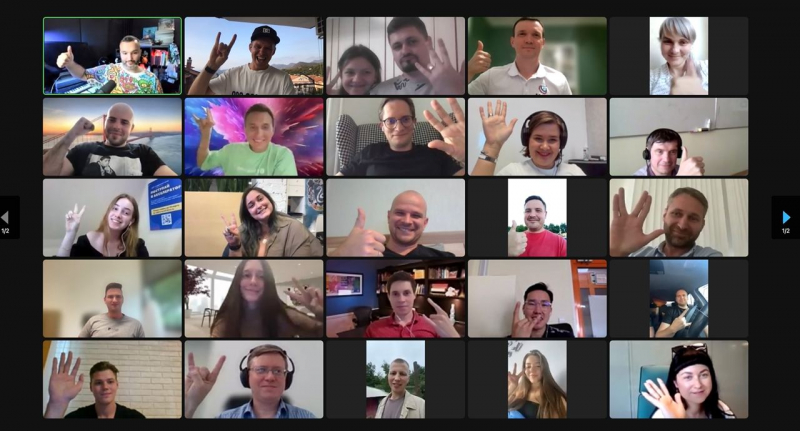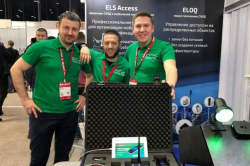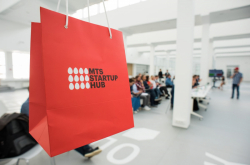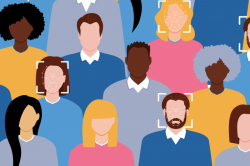This year, ITMO Accelerator received applications from over 270 teams, with only 36 passing the selection. The program welcomed both aspiring and experienced entrepreneurs who got the chance to work side by side with their curators (mentors) and experts, participate in workshops, and meet potential customers.
“Last season, we tested out new training formats and were primarily interested in conducting interactive workshops and group meetups with wide-ranging experts. This format is especially popular with participants because it allows them to acquire new skills and apply them in a short amount of time. During the program, participants cooperated with representatives of top Russian corporations who assisted them in building sustainable businesses,” says Alexey Solomatin, the head of ITMO Accelerator.
All in all, Demo Day included 13 startup ideas in a wide range of topics, from mental and physical health to logistics and education.
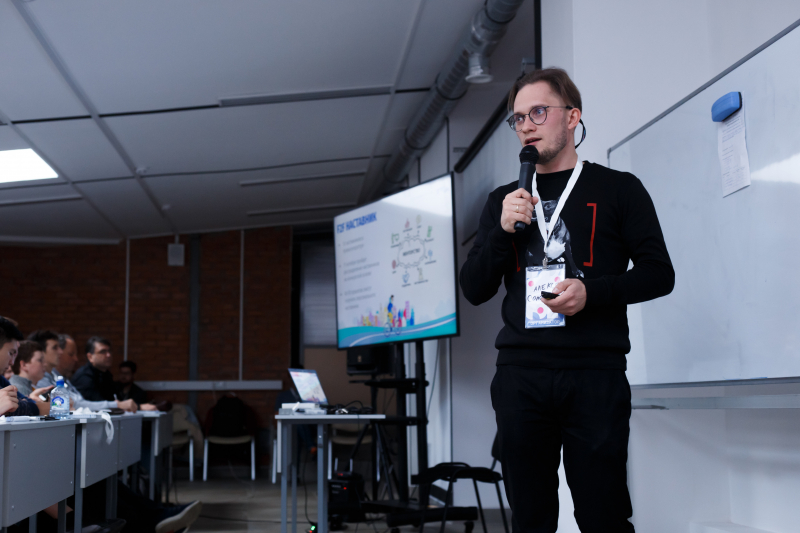
Alexey Solomatin. Credit: ITMO.NEWS
“Nearly half of the projects presented at Demo Day were focused on health tech. This is one of the most fast-growing and promising fields today, which received the highest amount of investments in 2020 and greatly prospered in the pandemic,” explains Alexey Solomatin.
Winners were chosen by an expert board who evaluated each team’s performance and potential. The board consisted of 11 specialists, including Vitaliy Yanko, a mentor at Startup Wise Guys and Batlic Sandbox, an executive partner at SoftwareLead Pro, and a partner at Insta Ventures; Alexander Kalinnikov, a senior investment manager at Investment Fund New Industry; Sergey Khmelevsky, CEO of ITMO Highpark JSC; Vladlena Serebryakova, head of ITMO’s Technology Transfer Center and Science and Business Partnership Center; Ekaterina Luchaninova, head of Yandex Cloud's startup community; Elizaveta Kalenchuk, an innovation ecosystem manager at Kaspersky Product Studio; Vadim Baranov, a member of the iHarvest business angels club; Yury Andreychuk, CEO of Helix; Artem Paderin, a business tracker and entrepreneur; Georgy Agababyan, a team lead at Х ТЕK’s analytics department and a leading blockchain specialist; and Nikita Zakharov, an employee at 8 Stones Ventures.
As a result, the experts selected four winners who received valuable experience and feedback, merch, books, as well as the opportunity to work at ITMO’s coworking spaces and offices – not to mention a grant of up to 400,000 rubles for six months from Yandex Cloud.
Sound-controlled fistula
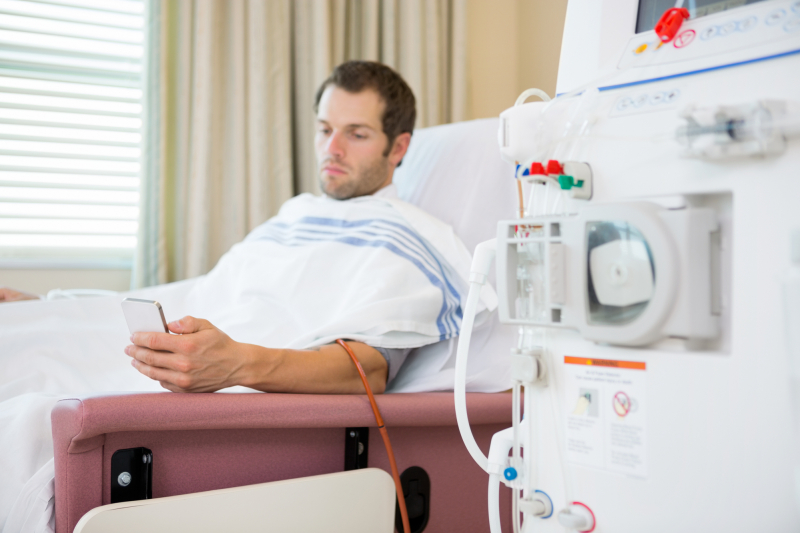
Credit: photogenica.ru
The third place at Demo Day went to vITa Fistula – a smart service for monitoring vascular access in hemodialysis patients. An extrarenal blood purification procedure is performed using a fistula (an artificial channel between an artery and a vein), which pumps the blood through a specialized device where it's filtered before being returned to the body. Its performance and services can be optimized by sound and it can be done with the help of a special app and a stethoscope created by the team of Dmitry Fedorov. Here is how it works: a user records the sound using their smartphone and then the neural networks start analyzing the data to put it into one of the following categories (“good”, “bad”, or “unclear”). After the procedure, all the information, including sounds, channel images, and ultrasound results, can be analyzed by a medical specialist. In addition to the new service, the team also plans to create their own portable device that can record sounds continuously.
“I want to thank Vadim Baranov who recommended me to join ITMO Accelerator. The main activities coupled with a preparatory program, which includes theoretical and practical classes, Q&As, mentorships, meetups with experts, and workshops, make it the best accelerator in the city. Together with ITMO, I’d love to run a similar program at Surgut State University where I lead projects for aspiring entrepreneurs,” comments Dmitry Fedorov.
Many medications – one solution
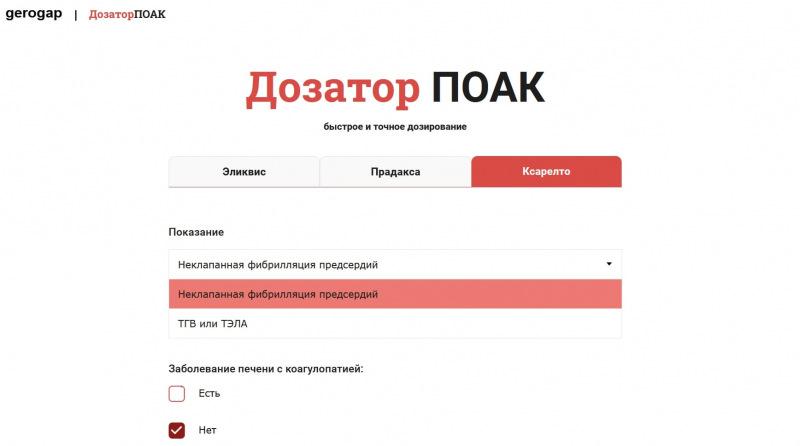
Credit: gerogap.ru
The second place was shared by two projects. The first one is an online service for fast and accurate dose selection called Дозатор лекарств (medication dispenser – Ed.). As noted by project CEO Gleb Krasnov, more than 43 million people are injured worldwide each year due to medical errors, particularly misprescription of drugs. With over 8,000 medications registered in Russia alone, how is one specialist supposed to remember their dosage? To address this problem, the startup team developed a tool that allows medical specialists to reduce the time of dosage selection to 20 seconds and make more precise treatment decisions. Within three months, the team built 15 dispensers for various applications, such as oral anticoagulants, and shortly plans to enter Asian markets, as well.
“We’re grateful to our mentor Kirill Kovalev who helped us with our business plan and OKR (a project management technique – Ed.). We’re happy with our results and are glad that we got to meet Maxim Zaikin, Gleb Lopin, and Alexey Solomatin at Demo Day,” shares Gleb Krasnov.
Line-free live
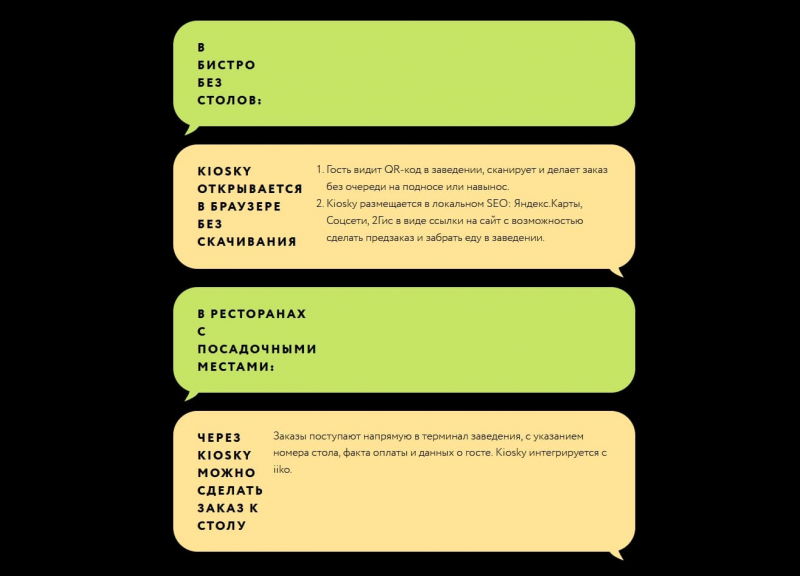
Credit: kiosky.io
Ivan Batura and his team found a solution to crowded food spaces. With Kiosky, there’s no more need to wait in line to place an order – users can choose and purchase their meals while sitting at a table. In just two weeks after its release, the app processed more than 2,000 transactions.
“Everything is easy and clear, with no download or registration required, just like everyone likes it. All you need to do is scan a QR code, make your order, and fill in your table number. Plus, you can pay using a fast payment system,” explains Ivan Batura.
The developers are currently expanding the app’s functions (e.g., adding a feature for purchasing alcohol) and expect to include 60 more venues by late 2022.
Mental wellness in the workplace
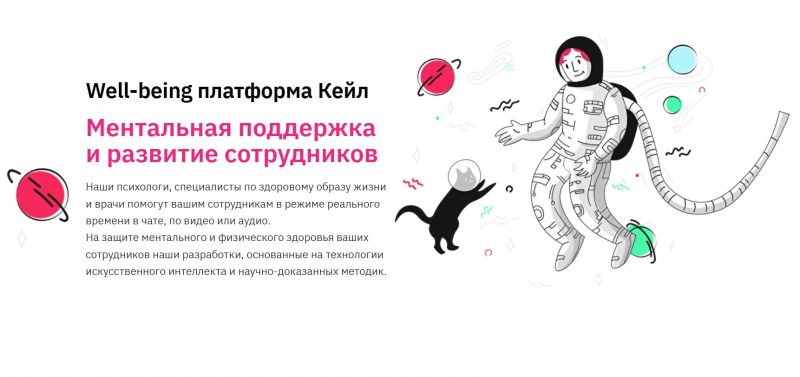
Credit: kale.coach
Loneliness, anxiety, depression, burnout, and challenges associated with remote work and relocation are frequent companions of company employees that deeply affect not only their performance but also physical and mental health. In order to prevent these conditions, companies offer their staff a multitude of corporate programs (e.g., health insurance), however, only 10% of them use these opportunities, according to the statistics. Therefore, companies spend their budgets inefficiently while employees receive no help. Kale is a virtual assistant specializing in problems related to mental and physical well-being, habits, and lifestyle, and even finance and law. The assistant communicates with users daily and, if necessary, books sessions with a specialist or suggests content on the topic.
The app already attracted over 1,500 specialists from IT companies, as well as medium and large businesses, such as Tatneft, Sibur, Skolkovo, and others. Now, the team hopes to get funding to enter global markets, too.
“We’ve been talking about other markets for a while and Kirill Kovalev was the one who showed us a way to get into Europe. He taught us how to perform CustDev (customer development – Ed.) with European IT companies so that we could improve our service and meet the expectations of these companies,” concludes Rim Safiullin, the CEO and founder of the startup.
